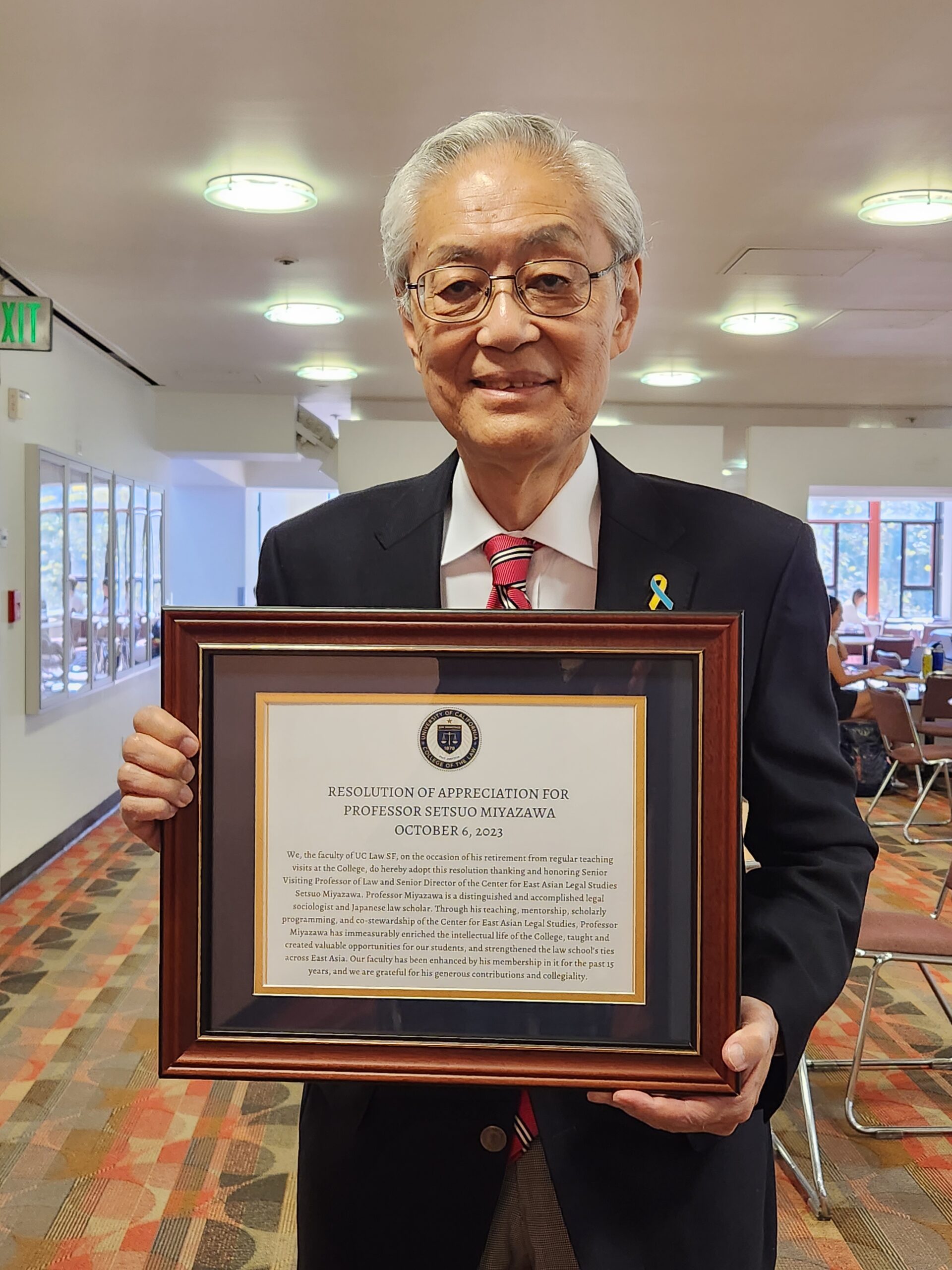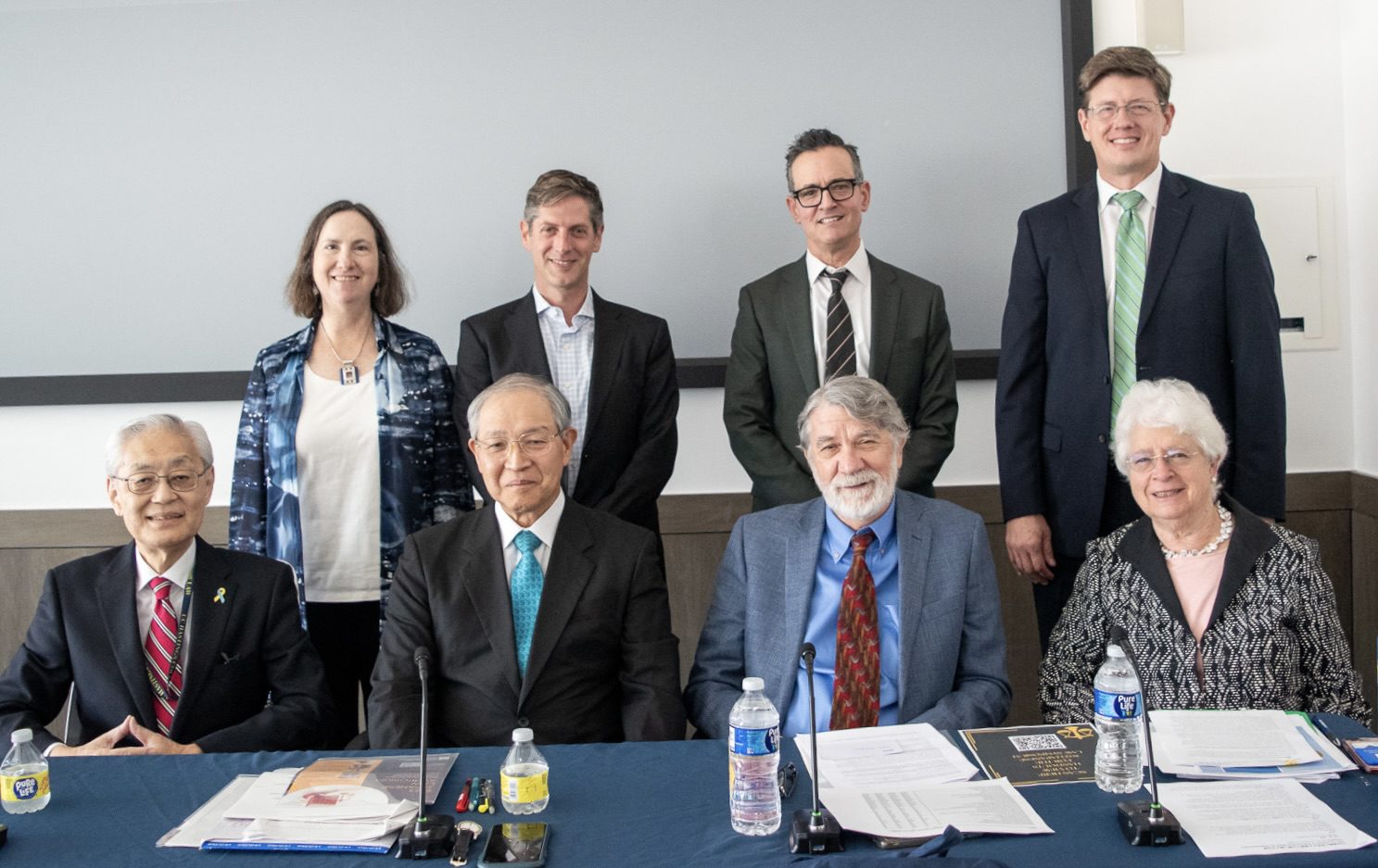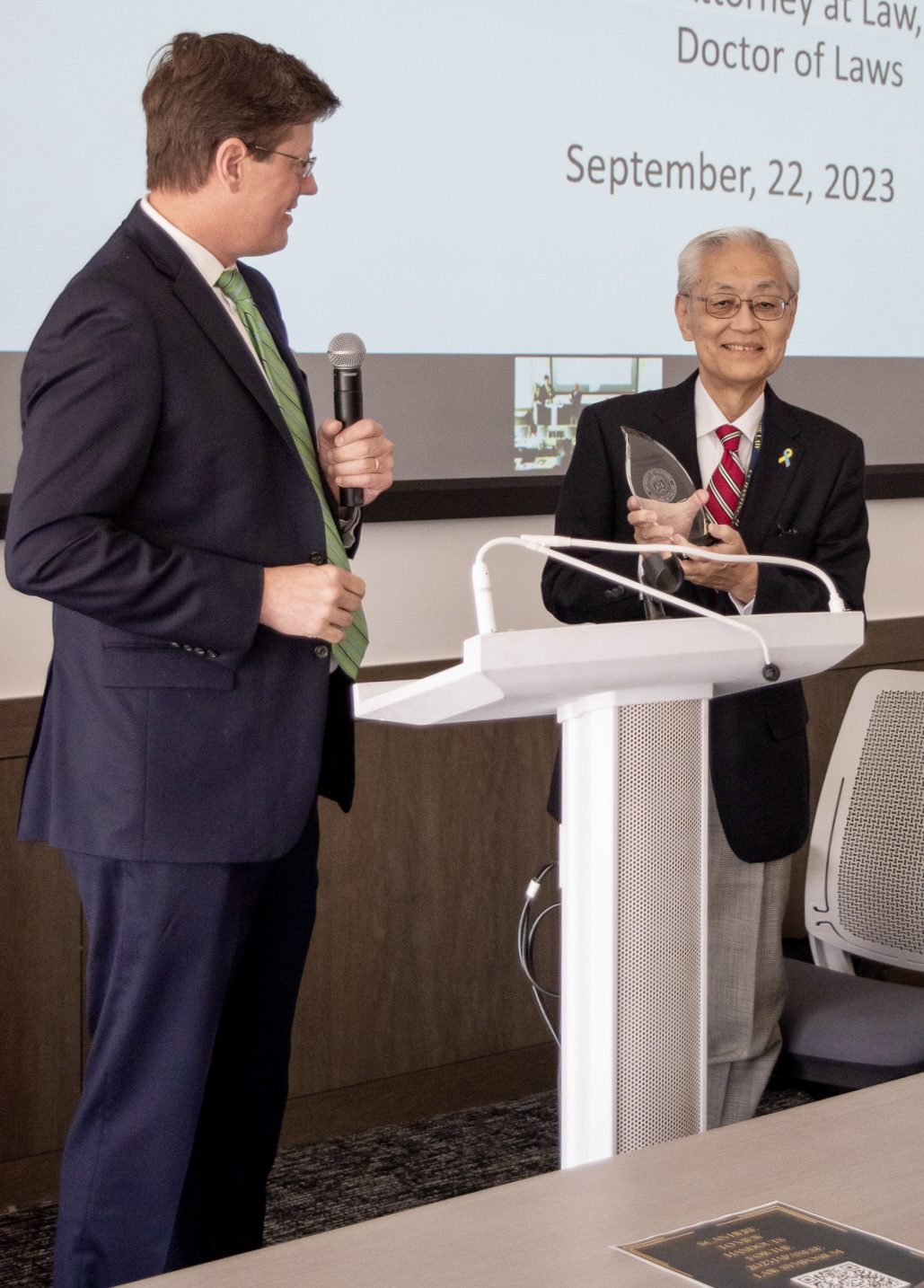UC Law SF Honors Retiring Professor Setsuo Miyazawa

Professor Setsuo Miyazawa was honored with a resolution of appreciation, unanimously approved by UC Law SF faculty members, recognizing his many contributions to UC Law SF and its Center for East Asian Legal Studies.
Professor Setsuo Miyazawa has for the last 15 years helped build UC Law SF’s reputation as one of the best places to learn about East Asian law and legal systems in North America.
A renowned scholar of Japanese law and sociolegal studies, he has been a pioneer in the field of sociology of law and has strongly supported major reforms to Japan’s systems of legal education, policing, and criminal justice.
When he announced plans to retire from teaching at UC Law SF this fall, it prompted an outpouring of well wishes and gratitude from former students and fellow faculty members, including one of his closest colleagues Professor Keith Hand.
“Professor Miyazawa has been a driving force for scholarly collaboration across the Asia Pacific region,” Hand said. “We’ve been incredibly fortunate to have such an influential scholar teaching on our campus.”

Clockwise from top left are UC Law SF International Development Law Center Faculty Director Jesssica Vapnek, Associate Dean of Global Programs Binyamin Blum, Provost & Academic Dean Morris Ratner, Center for East Asian Legal Studies (CEALS) Director Keith Hand, Professor Marsha Cohen, Japanese law scholar Lawrence Repeta, Tokyo attorney Hiroshi Miyake, and CEALS Senior Director Setsuo Miyazawa.
Miyazawa first came to UC Law SF as a visiting professor in 2008. He and Hand worked for years to develop the law school’s East Asian curriculum while organizing numerous panel talks and events. In 2015, they co-founded what would later become the Center for East Asian Legal Studies. Hand is director of the center, while Miyazawa serves as senior director.
In 2012, Miyazawa started organizing an annual Japanese Law Symposium, which has tackled a wide range of topics, including justice system reform, hate speech, the “glass ceiling” for female professionals, and fallout from the 2011 Fukushima nuclear accident.
“He’s been instrumental in bringing very influential scholars and practitioners to UC Law SF to share their perspectives on cutting-edge issues,” Hand said.
This year, Miyazawa invited experts to discuss a decades-long fight to make Japan’s government more open and transparent. The Sept. 22 symposium featured panelists Hiroshi Miyake, a Tokyo attorney and leading scholar and advocate of Japan’s Open Government Movement; Lawrence Repeta, an attorney whose lawsuit led to a 1989 Supreme Court decision overturning Japan’s ban on notetaking in public court hearings; and UC Law SF Professor Marsha Cohen, who spoke about parallel public records laws in the U.S. and California.
Since 2008, Miyazawa has also taught the Japanese Legal System seminar, which traces the history of Japanese law from the 1600s to modern Japan, including recent reform movements. The seminar explores contemporary legal issues and explains how Japan’s modern judiciary, legal profession, and law schools are structured.
“American students should be interested in these issues because East Asia has a huge population, and the legal markets there are very big,” he said. “I wanted to encourage American students to understand possibilities for their work.”
Miyazawa has mentored many students, including Daigo Takahashi ’14, who now works as an attorney at Morrison Foerster in San Francisco. He said, “Professor Miyazawa was instrumental in showing me the opportunities available for American attorneys in Japan, which eventually led to starting my career there as a cross-border [mergers and acquisitions] lawyer.”

Professor Keith Hand presented a lifetime achievement award from the Center for East Asian Legal Studies to its founding senior director, Setsuo Miyazawa.
Additionally, Miyazawa has held leadership roles in multiple professional organizations for legal scholars, and he co-founded several organizations that promote scholarly collaboration, including the Asian Law and Society Association.
“I’ve been working to develop those organizations to provide younger scholars forums where they can present their activities and connect with scholars who have similar interests,” he said.
Miyazawa has a wide range of research interests, and after retiring he plans to continue working on research projects, including ones that explore police interactions and how they affect individuals in Japan, the level of law practice specialization among Tokyo attorneys, and the development of new areas of criminal defense practices in Japan.
As he prepares to retire from teaching at UC Law SF, Miyazawa said he plans to continue working with the Center for East Asian Legal Studies as Senior Director Emeritus.
“I’d like to return every year for a week or two if I can, particularly to organize a regular symposium on the Japanese legal system,” he said.
Miyazawa received multiple honors this fall in recognition of his many contributions to the law school. In September, he was presented with a lifetime achievement award from the Center for East Asian Legal Studies. In October, UC Law SF faculty members unanimously adopted a resolution that stated in part, “Professor Miyazawa has immeasurably enriched the intellectual life of the College, taught and created valuable opportunities for our students, and strengthened the law school’s ties across East Asia. Our faculty has been enhanced by his membership in it for the past 15 years, and we are grateful for his generous contributions and collegiality.”